Abstract
In this study, a social skills training program for institutionalized mildly or moderately retarded adults was extended to include skills relevant to vocational settings. Target behaviors involving a verbal action or reaction within six skill areas were taught using a commercially available board game, Sorry, and a specially designed card deck. The training program featured response specific feedback, self-monitoring, individualized reinforcers, and individualized performance criterion levels. Using a multiple baseline across two groups (n = 3 per group), the game contingencies increased social/vocational skills in all targeted areas. Generalization was assessed in two settings: a simulated workshop in which pre and post measures were taken and in the institutional workshop where the residents worked. The posttraining simulated workshop results revealed that the residents' newly learned skills had generalized. However, repeated generalization measures of the residents' social interactions in the institutional workshop were equivocal as were measures of their productivity.
Full text
PDF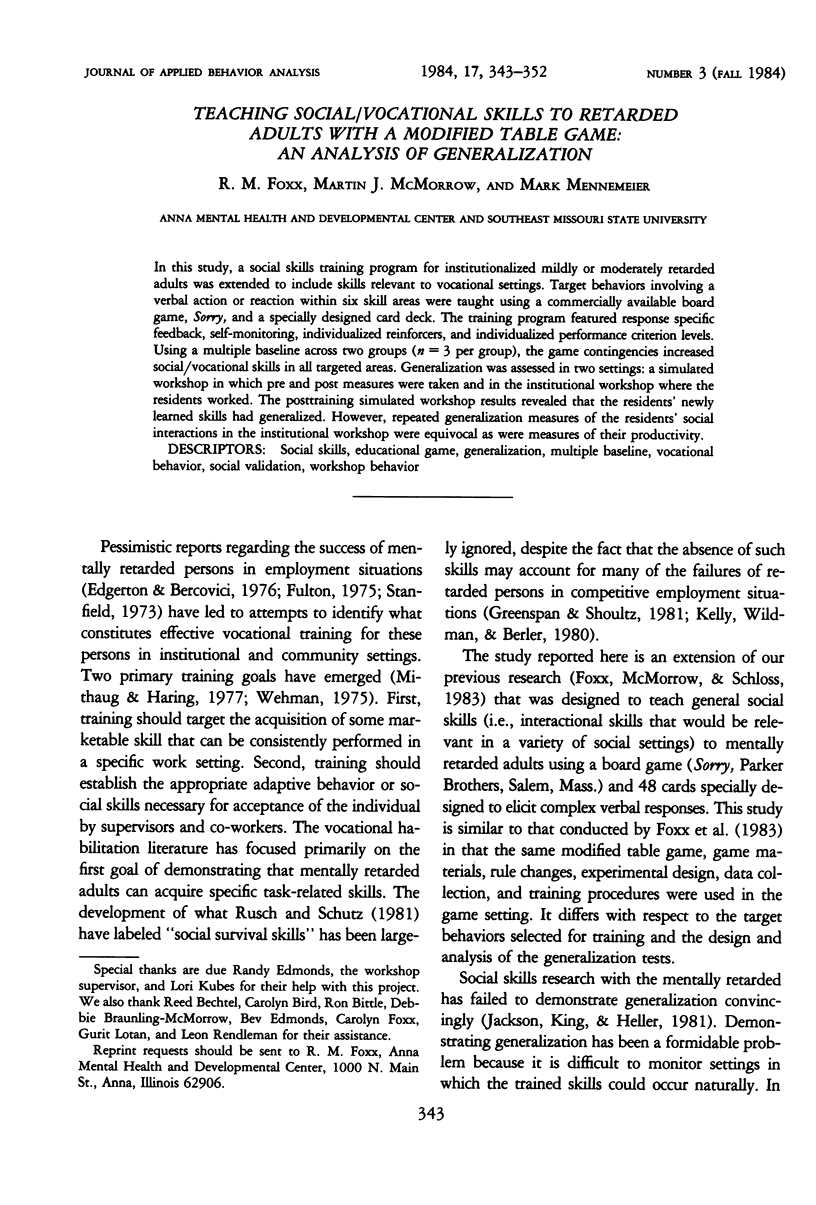
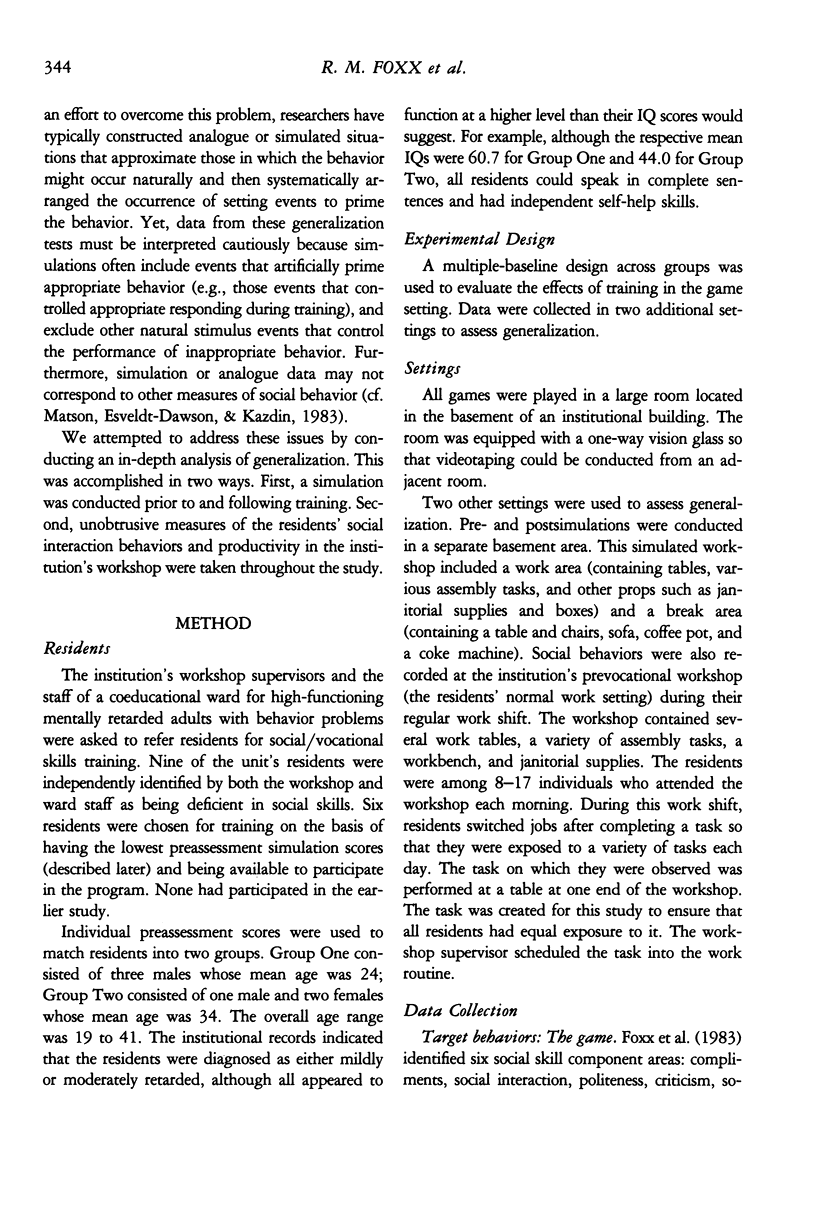
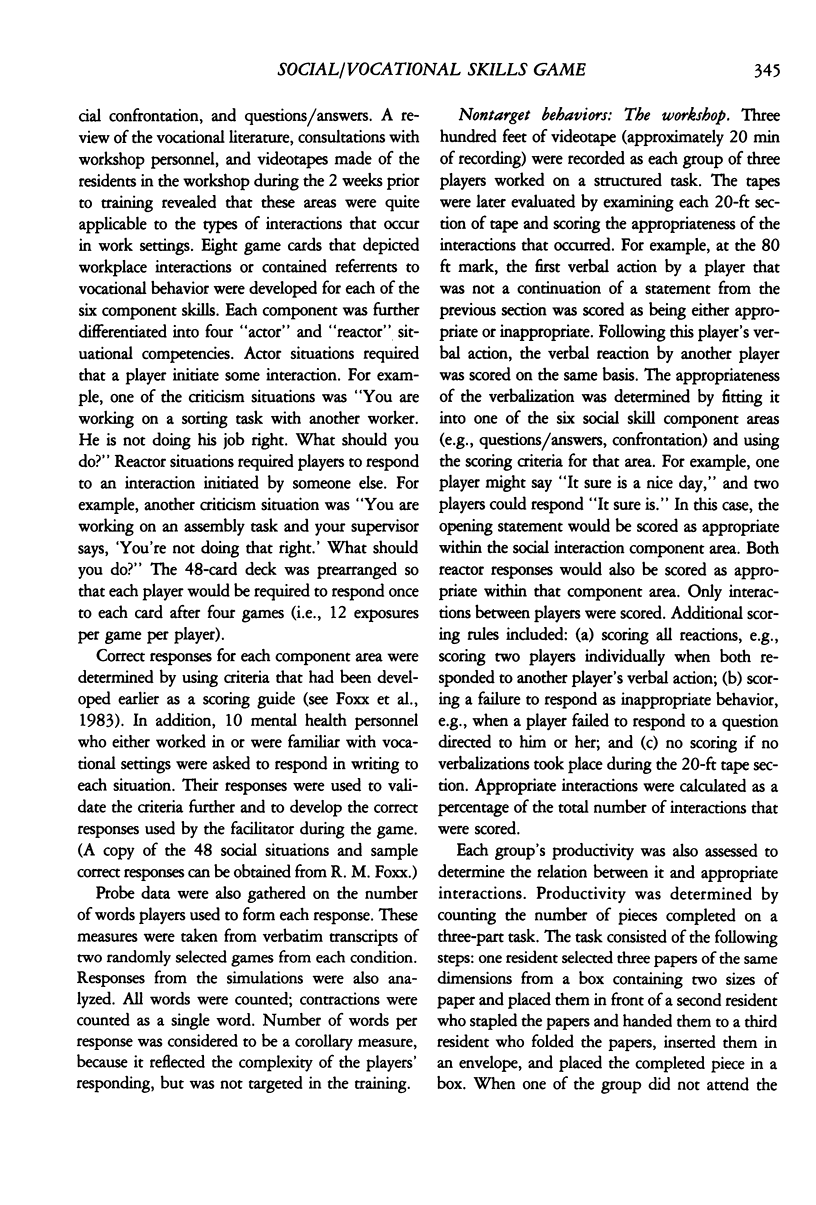
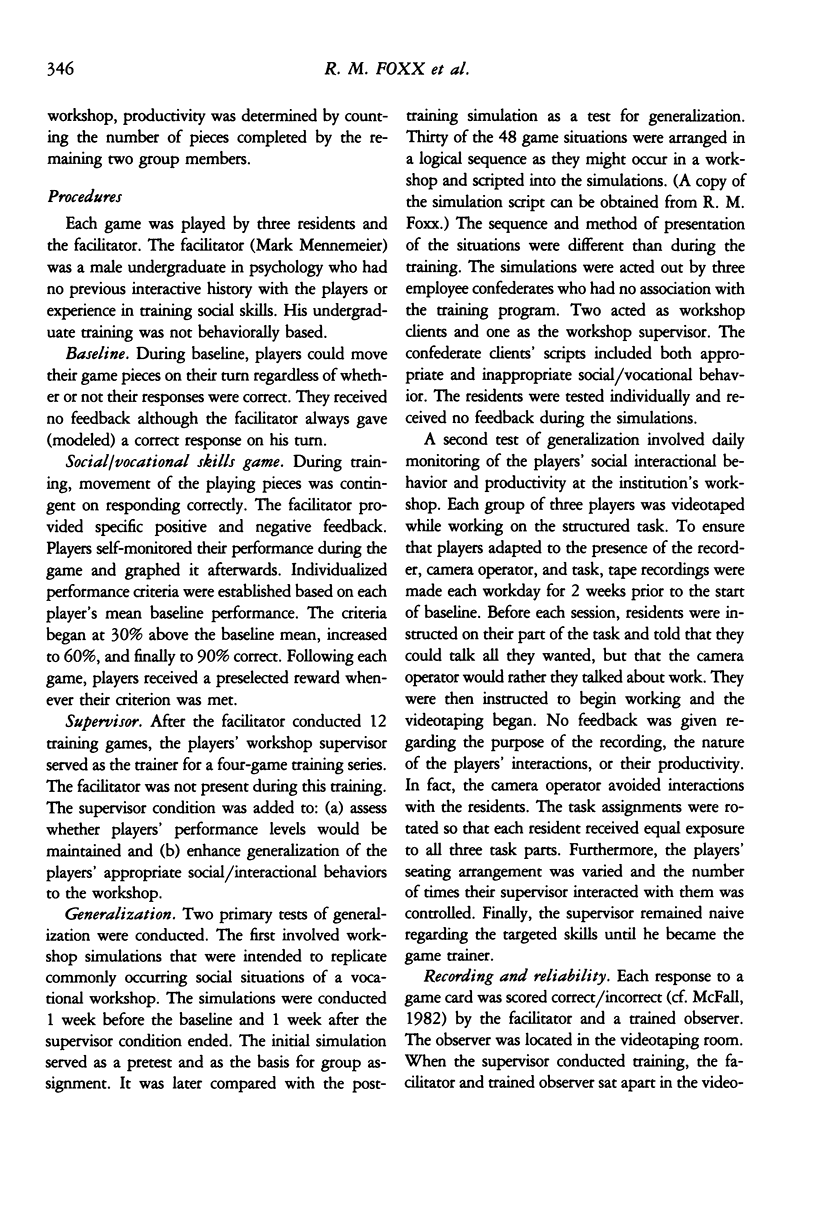
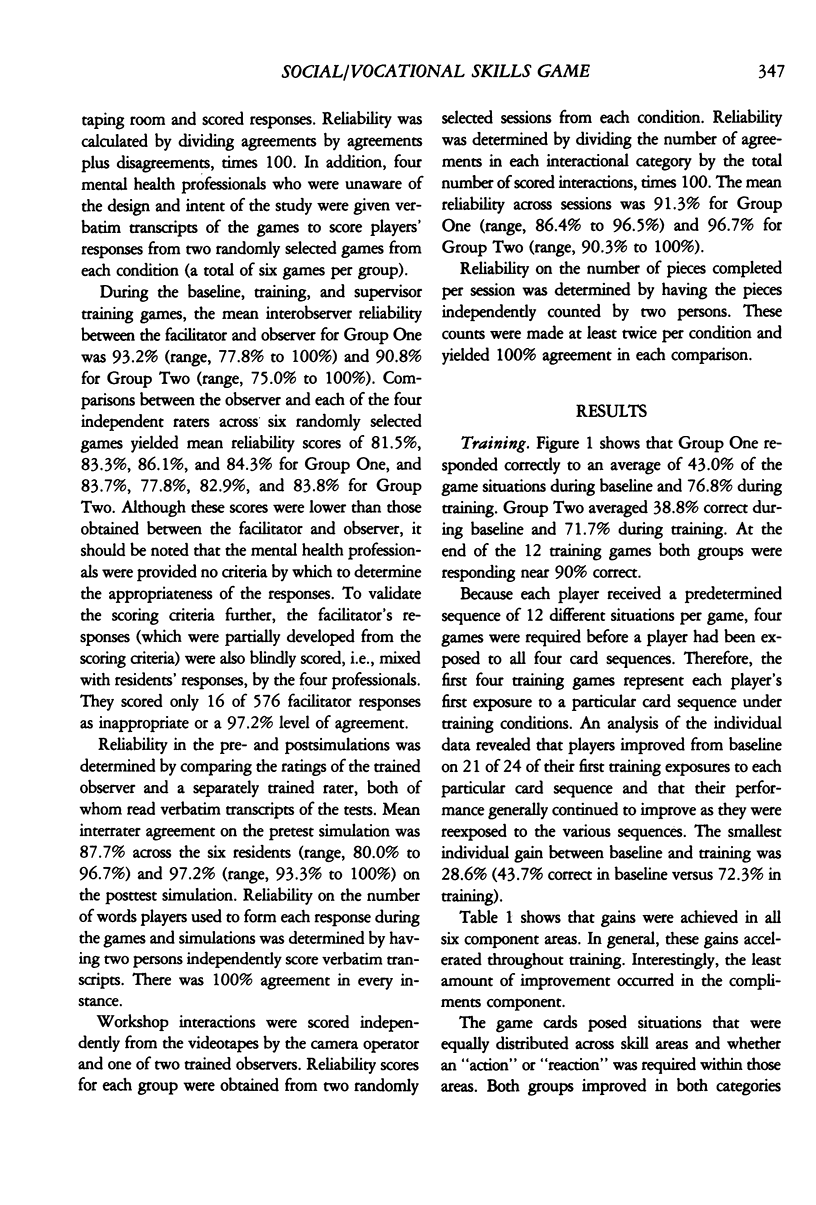
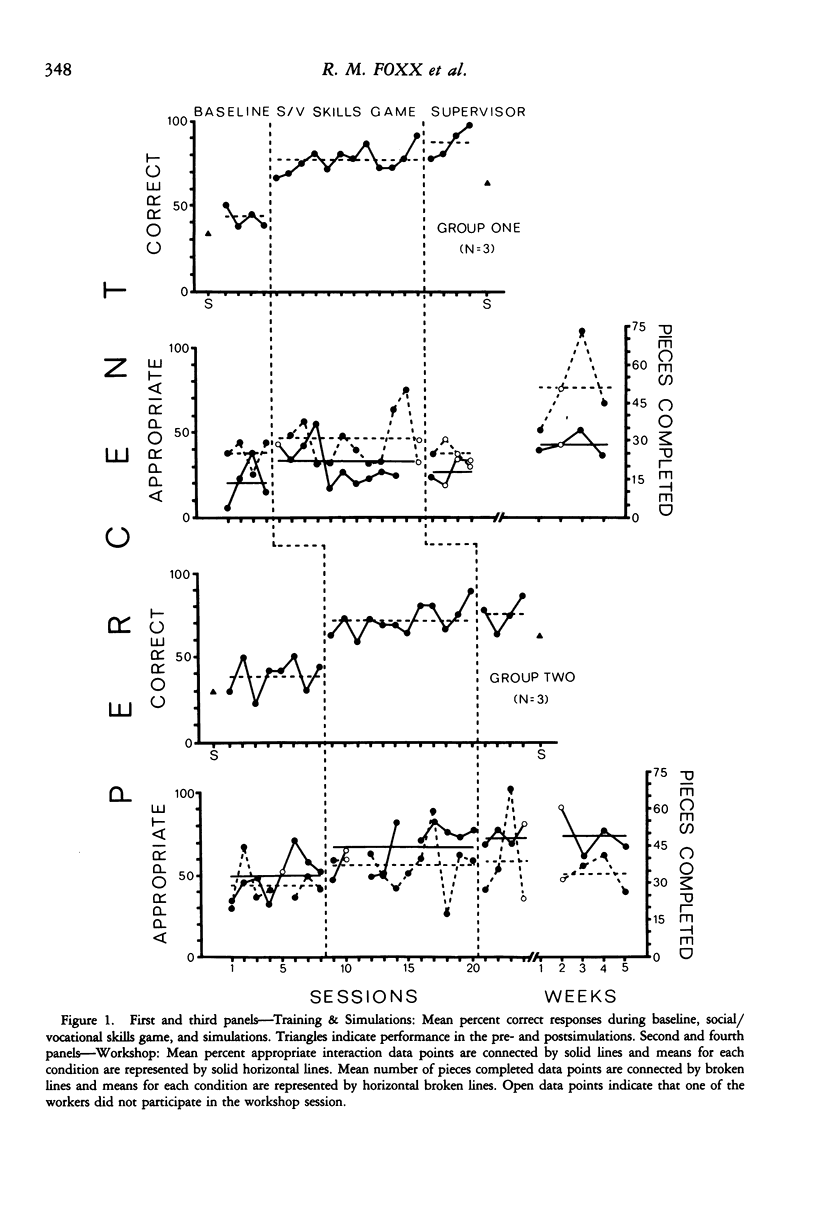
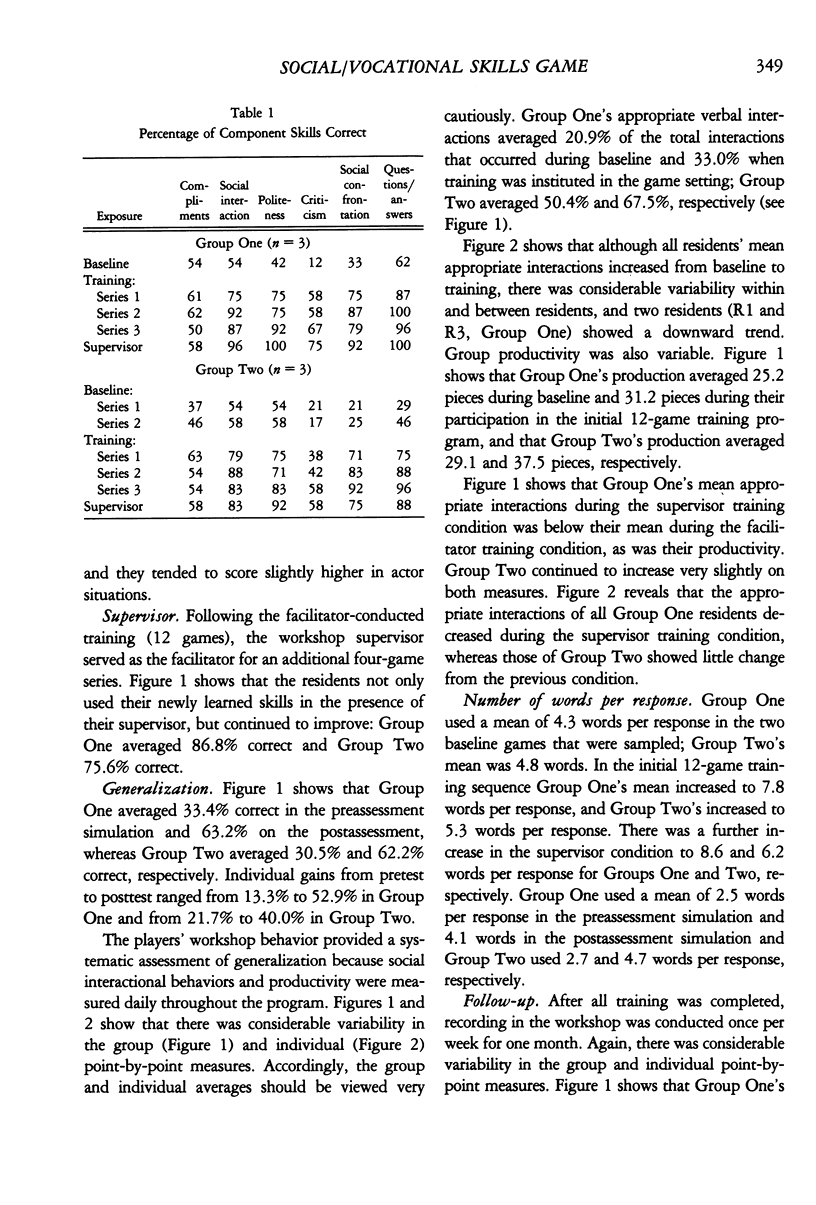
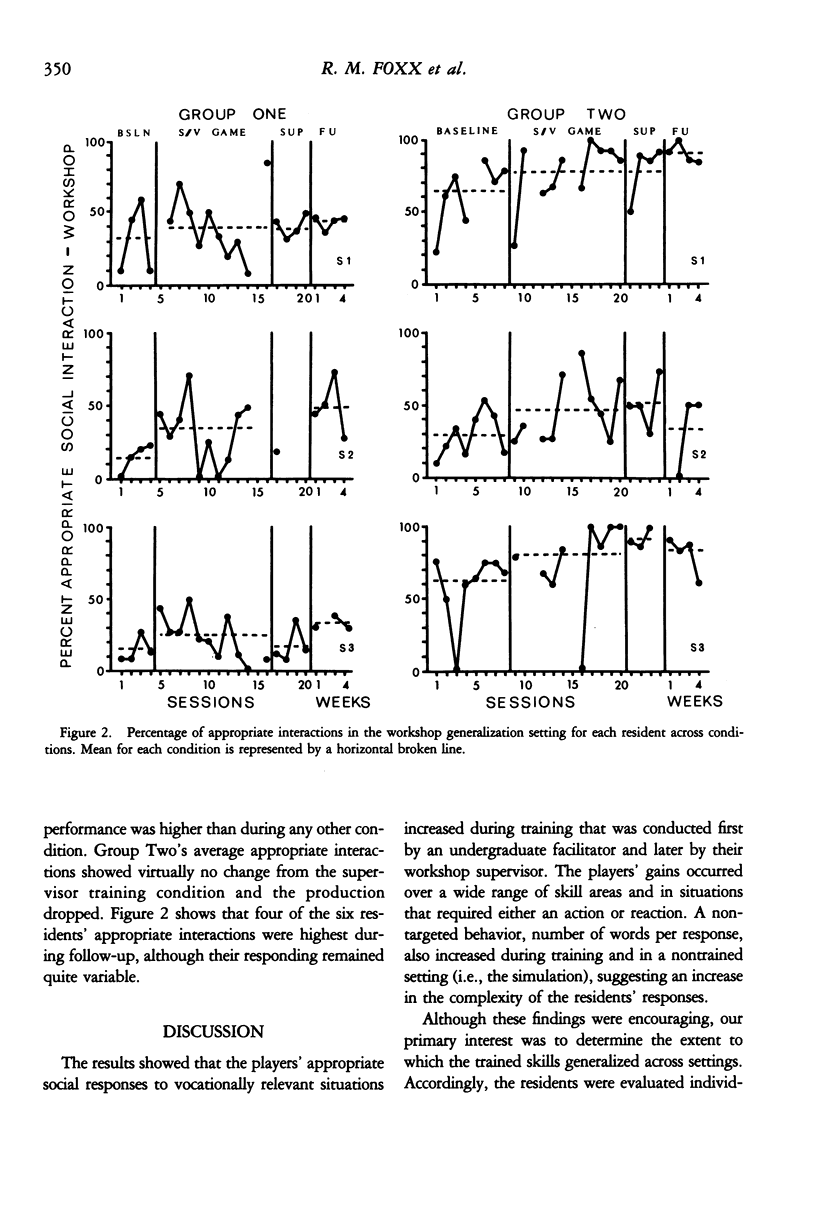
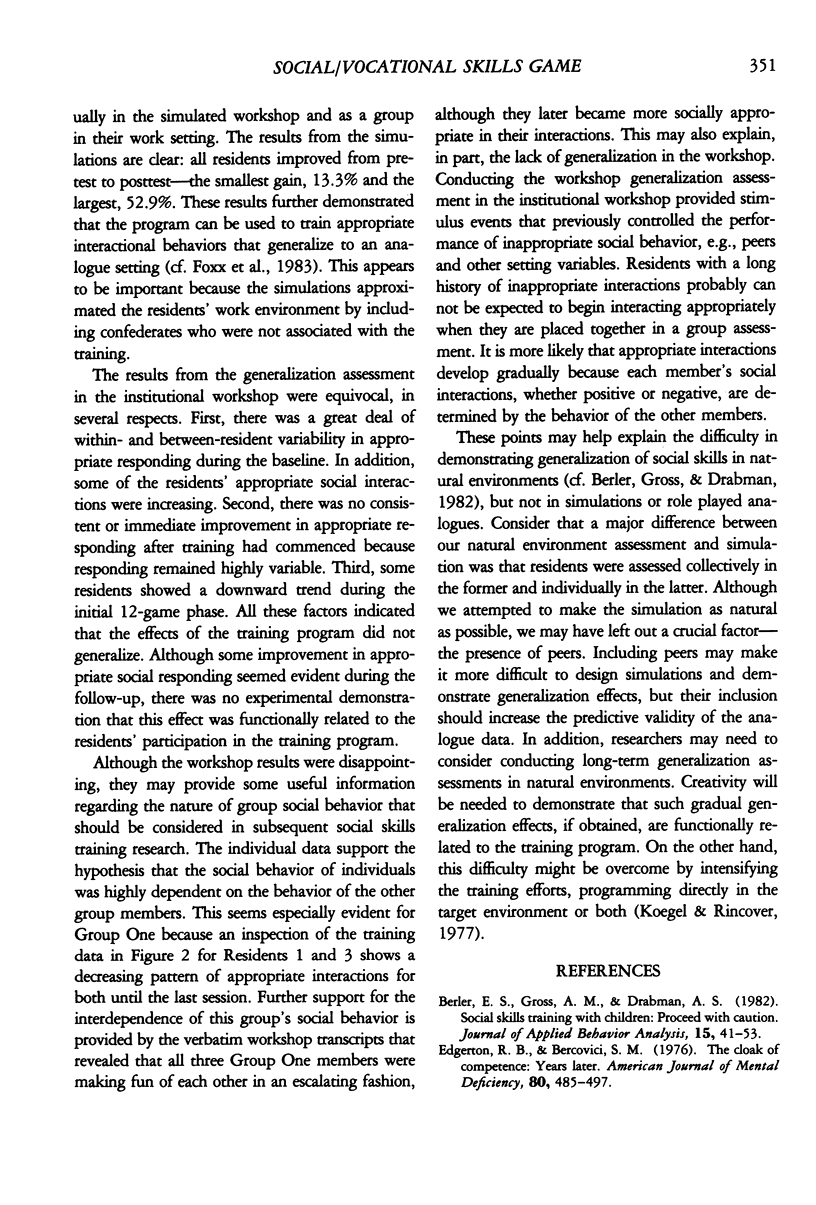
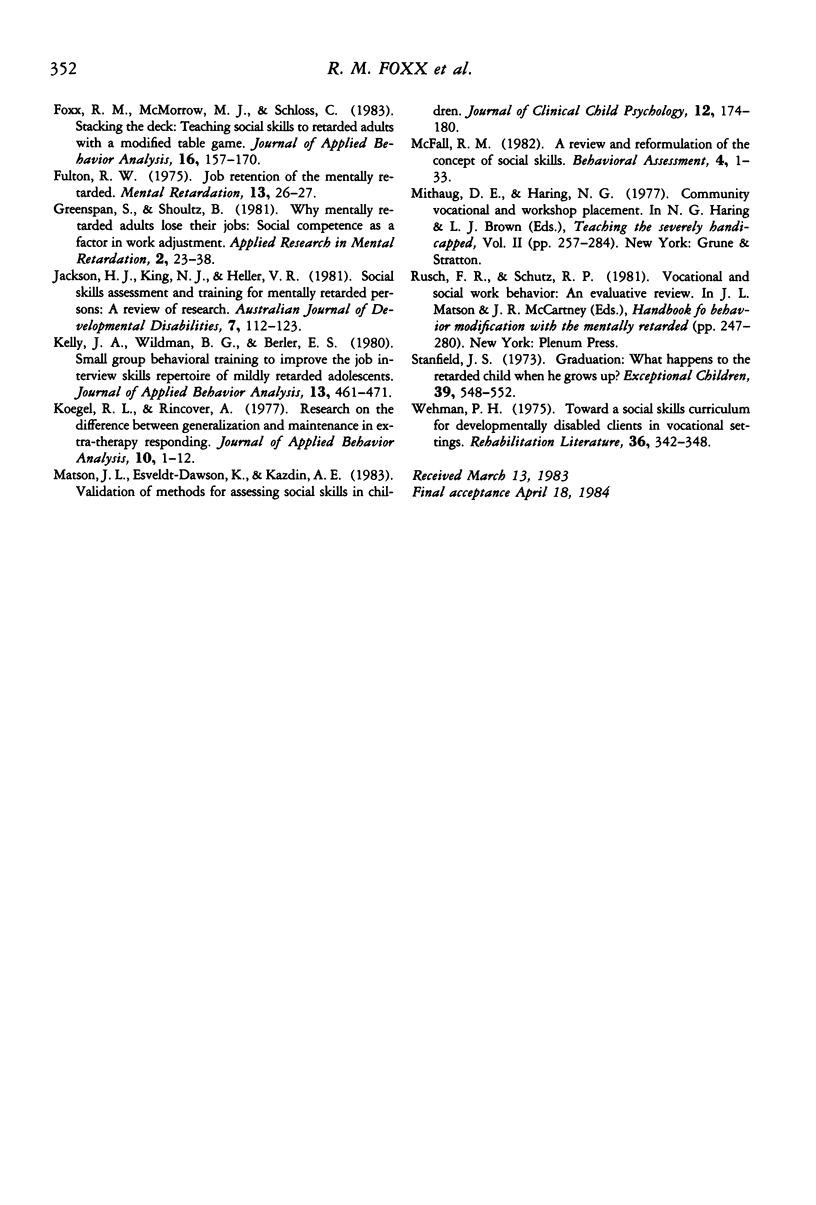
Selected References
These references are in PubMed. This may not be the complete list of references from this article.
- Berler E. S., Gross A. M., Drabman R. S. Social skills training with children: proceed with caution. J Appl Behav Anal. 1982 Spring;15(1):41–53. doi: 10.1901/jaba.1982.15-41. [DOI] [PMC free article] [PubMed] [Google Scholar]
- Edgerton R. B., Bercovici S. M. The cloak of competence: years later. Am J Ment Defic. 1976 Mar;80(5):485–497. [PubMed] [Google Scholar]
- Foxx R. M., McMorrow M. J., Schloss C. N. Stacking the deck: teaching social skills to retarded adults with a modified table game. J Appl Behav Anal. 1983 Summer;16(2):157–170. doi: 10.1901/jaba.1983.16-157. [DOI] [PMC free article] [PubMed] [Google Scholar]
- Fulton R. W. Job retention of the mentally retarded. Ment Retard. 1975 Apr;13(2):26–26. [PubMed] [Google Scholar]
- Greenspan S., Shoultz B. Why mentally retarded adults lose their jobs: social competence as a factor in work adjustment. Appl Res Ment Retard. 1981;2(1):23–38. doi: 10.1016/0270-3092(81)90004-7. [DOI] [PubMed] [Google Scholar]
- Kelly J. A., Wildman B. G., Berler E. S. Small group behavioral training to improve the job interview skills repertoire of mildly retarded adolescents. J Appl Behav Anal. 1980 Fall;13(3):461–471. doi: 10.1901/jaba.1980.13-461. [DOI] [PMC free article] [PubMed] [Google Scholar]
- Koegel R. L., Rincover A. Research on the difference between generalization and maintenance in extra-therapy responding. J Appl Behav Anal. 1977 Spring;10(1):1–12. doi: 10.1901/jaba.1977.10-1. [DOI] [PMC free article] [PubMed] [Google Scholar]
- Wehman P. H. Toward a social skills curriculum for developmentally disabled clients in vocational settings. Rehabil Lit. 1975 Nov;36(11):342–348. [PubMed] [Google Scholar]


